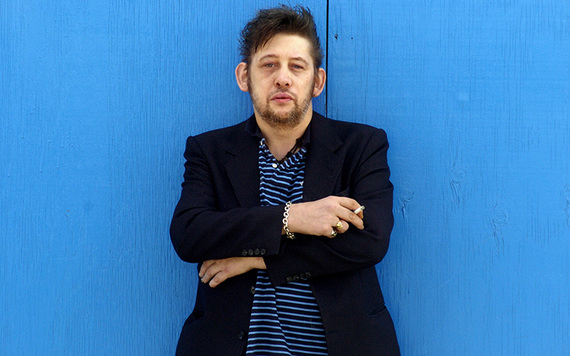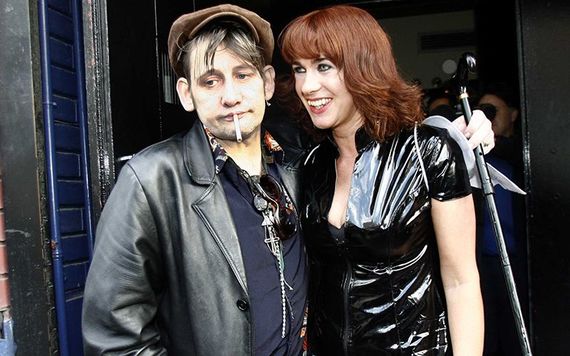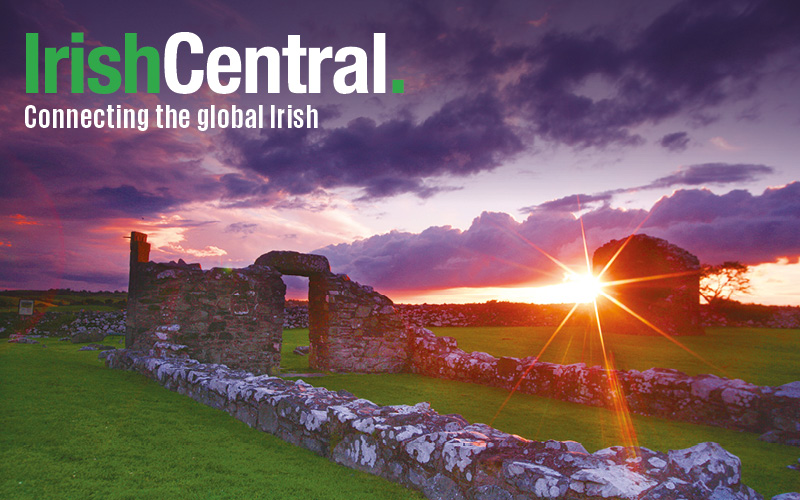Straight people don't get to tell LGBTQ people when anti-gay slurs are offensive. Yet one of the writers of "Fairytale" was himself gay.
Editor's note: It's Pride Month and so IrishCentral is exploring our past LGBT+ articles that explore the positive changes made in Ireland but also the changes that still need to happen. You can read more on the subject here.
Until you've spent five years in high school living in never-ending dread of hearing a homophobic word that will rob you of your dignity and possibly your life, don't pretend that you know what LGBTQ people are talking about when they complain about "Fairytale of New York."
Because you don't. Not by an Irish country mile. And you really don't get to tell gay people when they can and can not be offended by anti-gay slurs. Learn this now.
Some of you have already stopped reading this. The “it's just a song” and “it's just a word” and “it's a work of art” crowd have all made your strong feelings known by now. You have all taken to social media to loudly announce them. You don't see what the big problem is.
Well, no kidding you don't. We remember you from high school. We remember how most of you didn't offer a damn word in defense of that one poor LGBTQ kid it was being daily hurled at.
Read more: Readers say 'Fairytale' shouldn't be censored, MacGowan defends song

The relief that the crowd was turning on those poor souls and not you was enough of a warning to keep your mouth shut for five long years, wasn't it? Because oppression relies on your unspoken consent.
All those poor soft touches and those all too easy marks were fair game as long as the list of targets didn't keep growing to include you, right?
“In the end, we will remember not the words of our enemies, but the silence of our friends,” said Dr. King. The gay kids remember your long silence, bub. The years of it.
So are you all seriously asking us to believe, now that you're all so woke, so high minded, that gay equality has apparently been achieved and that no one needs to raise an eyebrow when the F-word is being bandied about again in the bars and on the air?
Please. Miss me with that why do “you” let a word have so much “power” mess.
Read more: Saoirse Ronan and Jimmy Fallon’s Irish up Christmas with a cover of “Fairytale of New York”

Like a lot of gay people, I have a complicated relationship with the word faggot, but I know what it is: a gateway and an invitation. When you pass through that gateway, you surrender your humanity and empathy, you are being invited to treat people like things. Then the gloves come off.
I have mostly heard the F-word uttered when violence or the prospect of violence was imminent, and I live in New York City, not Mobile, Alabama. The word itself is a form of violence, intended to strip away dignity, to turn a person into a thing.
But no one is protesting the use of the word 'slut' in the song, some people say, trying to get ahead of the discussion. Well, you know what? For as long as I can remember women and men have been protesting (and some reclaiming) the intentionally shaming word slut.
I vividly remember when the word 'slut' was being vociferously protested in my school in the mid-1980s, and then later at my colleges and in my daily life. Women understandably hated the sexist double standard that undeniably resides within it.

But here's something you might not expect. I agree that Fairytale of New York is a work of art. It seems to access something both universal and particular in the Irish experience, a sense of life being, in the end, insurmountably hard or disillusioning, and of hurt being handed on from generation to generation, and of love being the only balm on this earth to make it ever mean something.
I also know enough about character and rhyming to understand that where the word “faggot” occurs in the song, it's to echo “maggot” in the rhyming scheme and create a sense of caustic fury. I think Shane McGowan is a poet. I think his first intention was to convey character and atmosphere, not offense.
And yet, and yet. The song was recorded in 1987, at the very height of the AIDS crisis in Europe and America, when being called a faggot had achieved an entirely new level of menace and social stigma. No one who used the word faggot in 1987 was unaware of how literally toxic the word had become. We can dispense with the contention that it meant something different then. It meant rejection and death.

Here's another thing you may not know. The time when gay kids hear the word faggot used the most is exactly when they're least equipped to respond to it. It's why it's the go-to insult in high school. It's because most people who are being called it are not out of the closet yet and probably deeply fearful of rejection not just by their peers but by their own family.
So the fight is fixed. Of course, it is. No one is more conservative than a room full of teenagers, after all. They don't pick fights they haven't already won. Their cowardice masquerades as strength. It's the ethical equivalent of a Donald Trump tweet.
Then again, Philip Chevron was a member of The Pogues and he was gay. In fact, he partly wrote the song. That's a wrinkle that has been left out of most of the discussions.
Gay Irish people already have a complicated relationship with the song, but that detail can take it right over a cliff edge. How could Chevron have consented? Maybe because he took no real offense?
Most Irish people already have a complicated relationship with Christmas, but for gay Irish people, it's even more complicated again. First, you'll be asked by nosy relatives who you're dating. Or you'll be asked if you're bringing your “partner” home. Or you'll be bluntly asked to stay away entirely by homophobic relatives who no longer consider you blood. It can get messy fast.

In that sense Fairytale fairly echoes LGBTQ experience, because like the song we don't always have a welcoming nuclear family to come home to.
But here's what ultimately saves Fairytale for me: the explosion of bitter recriminations on the holiest night of the year that happens mid-song during Fairytale is so Irish that it makes me laugh.
That is undeniable and unmistakably us. That's what makes Fairytale unlike almost any other Christmas song on my list (and it's a very short list).
But be clear, this is not a dispensation, gay people don't want to make it easy for you, nor should they. Being called a faggot is an obscenity that diminishes the person speaking and the person being spoken to.
So if you're listening to it this year, try not to sing that line. And if you must sing it, be aware that you could very easily be called out.
Maybe you can start by explaining why you're speaking out so loudly now when you were so silent back then?
What are your thoughts on the song? Let us know in the comments section, below.
*Originally published in Dec 2018.




Comments